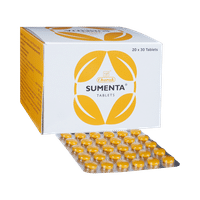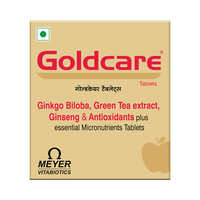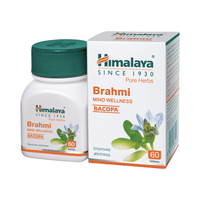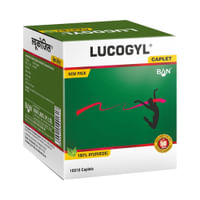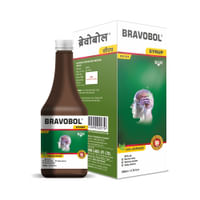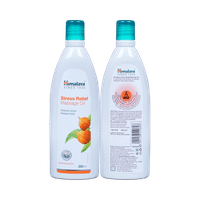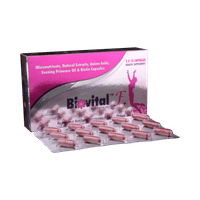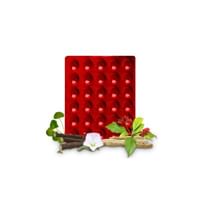Rs.54.60for 1 strip(s) (10 tablets each)
food interaction for Vertiford Tablet
alcohol interaction for Vertiford Tablet
pregnancy interaction for Vertiford Tablet
lactation interaction for Vertiford Tablet
food
alcohol
pregnancy
lactation
Vertiford 16mg Tablet may be taken with or without food, but it is better to take it at a fixed time.
None
None
CAUTION
Consuming alcohol with Vertiford 16mg Tablet does not cause any harmful side effects.
SAFE
Vertiford 16mg Tablet may be unsafe to use during pregnancy. Although there are limited studies in humans, animal studies have shown harmful effects on the developing baby. Your doctor will weigh the benefits and any potential risks before prescribing it to you. Please consult your doctor.
CONSULT YOUR DOCTOR
Vertiford 16mg Tablet is probably unsafe to use during breastfeeding. Limited human data suggests that the drug may pass into the breastmilk and harm the baby.
CONSULT YOUR DOCTOR
SALT INFORMATION FOR Vertiford 16mg Tablet
Betahistine(16mg)
Vertiford tablet uses
{med_name} is used for Meniere's disease. It helps to reduce the episodes of vertigo associated with Meniere's disease.
How vertiford tablet works
Vertiford 16mg Tablet is a histamine analog. It works by improving the blood flow in the inner ear which reduces the pressure of excess fluid there. Excess fluid can send signals to the brain causing nausea, dizziness or spinning sensations (symptoms of Ménière's disease). Vertiford 16mg Tablet additionally dampens down the nerve signals sent from the inner ear to the brain relieving the symptoms of Ménière's disease.
Common side effects of vertiford tablet
Headache, Indigestion, Nausea, Stomach pain, Bloating
SUBSTITUTES FOR Vertiford Tablet
806 Substitutes
806 Substitutes
Sorted By
 Rs. 118pay 109% more per Tablet
Rs. 118pay 109% more per Tablet Rs. 169.16pay 180% more per Tablet
Rs. 169.16pay 180% more per Tablet Rs. 393.65pay 334% more per Tablet
Rs. 393.65pay 334% more per Tablet Rs. 143.20pay 136% more per Tablet
Rs. 143.20pay 136% more per Tablet Rs. 138.14pay 129% more per Tablet
Rs. 138.14pay 129% more per Tablet
Expert advice FOR Vertiford Tablet
- You have been prescribed Betahistine to relieve vertigo (dizziness), hearing problems and tinnitus (noise in the ear) associated with Ménière's disease.
- It can only decrease the number and severity of attacks but may not completely stop them.
- Taking it with food can help reduce stomach problems.
- Take it at the same time each day to maintain a steady amount of the medicine in your body.
- Inform your doctor if you have a history of stomach ulcer, asthma, or low blood pressure.
- Inform your doctor if you are pregnant, planning pregnancy or breastfeeding.
- Do not stop taking the medicine suddenly without talking to your doctor first.
- You have been prescribed Betahistine to relieve vertigo (dizziness), hearing problems and tinnitus (noise in the ear) associated with Ménière's disease.
- It can only decrease the number and severity of attacks but may not completely stop them.
- Taking it with food can help reduce stomach problems.
- Take it at the same time each day to maintain a steady amount of the medicine in your body.
- Inform your doctor if you have a history of stomach ulcer, asthma, or low blood pressure.
- Do not stop taking the medicine suddenly without talking to your doctor first.
Frequently asked questions FOR Vertiford 16mg Tablet
Betahistine
Q. What is Meniere's disease? Does it go away?
Meniere's disease is a disorder of the balance and hearing organs in the inner ear. The symptoms include vertigo, fluctuations in hearing, tinnitus (ringing of the ears), and pressure in the ears. Along with that, one may experience dizziness which in turn may cause nausea and vomiting. The treatment for Meniere's disease depends on various factors. Hence, an open discussion with the doctor can help to determine the best treatment strategy in your personal case.
Q. Is Vertiford 16mg Tablet effective?
Vertiford 16mg Tablet is effective if used in the dose and duration advised by your doctor. Do not stop taking it even if you see improvement in your condition. If you stop using Vertiford 16mg Tablet too early, the symptoms may return or worsen.
Q. What are the triggers for Meniere's disease?
Meniere's disease can be triggered by conditions like stress, overwork, fatigue, emotional distress, additional illnesses, and pressure changes. Along with that, certain foods such as dairy products, caffeine, alcohol, and foods with high sodium content may trigger Meniere's disease. A 2-gram/day low-salt diet can help control vertigo in Meniere's disease.














